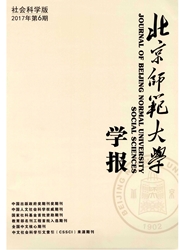

 中文摘要:
中文摘要:
在教育经济学研究领域,传统的教育选择研究文献往往假定个体只考虑教育收益,忽视了投资风险的真实存在。已有文献对教育选择行为的预期假定存在较大差异,强加在个体身上的假定可能导致对教育选择行为的不正确推论,而使用个体主观预期数据替代这些假定能更准确地分析个体教育决策行为。采用2007年在北京六所高校所做的“研究生教育态度的调查”,利用预期收入、风险数据对北京高校大学生的研究生教育选择问题进行的实证研究发现,预期收入对选择研究生教育有显著影响,而风险对教育选择的影响却不尽相同:收入风险对于教育选择的影响不明显,主观风险对选择研究生教育则有负效应。此外,还发现就业率是大学生决定是否进一步接受教育的重要因素,所学专业就业率越高,选择继续接受研究生教育的愿望越小。上述研究结果暗示,政府相关部门应定期公布劳动力市场数据,便于大学毕业生对收入和就业状况形成合理预期,从而对未来的教育作出理性选择,有效发挥人力资本的作用。
 英文摘要:
英文摘要:
Traditional research about people's educational investment only focused on benefit from education but ignored the risk. There are differences in expectation hypothesis about educational choice in the literature. Hypothesis imposed on in- dividuals might lead to incorrect inferences, as researchers decided the key elements from variable individual information with out knowing their thought. Thus, using individual expectation data might have more real results than the hypothesis. This pa- per investigated the postgraduate attendance decision on wage expectations, and risk from the data of"attitudes to the post-- graduate education survey"in 2007. The results showed that the expectations significantly affect the students'educational choice, but the reflection from risk to educational choice were different, which are earning risk does not influence postgraduate attendance decision and subjective risk has significant negative effect.
 关于廖娟:
关于廖娟:
 关于丁小浩:
关于丁小浩:
 同期刊论文项目
同期刊论文项目
 同项目期刊论文
同项目期刊论文
 期刊信息
期刊信息
